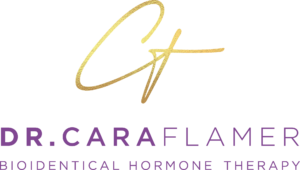Do you feel tired? Moody? Foggy-headed? Anxious?
Do you feel like you are not yourself, and you miss the person you used to be?
Do you have trouble sleeping or feel unrefreshed in the morning despite a good night’s sleep?
Have you been gaining weight in a way that doesn’t make sense given your diet and lifestyle?
Is your sex drive down or even gone?
Any of the above symptoms can be a sign that your hormones are out of balance or deficient.
Hormones: Beyond just “the pill” and for menopause
Most people think hormones are used for either contraception (the “pill”) or treating hot flashes in menopause. But in fact, the field of hormone replacement is much more diverse than just those two scenarios.
Young women who suffer with PMS or heavy periods may benefit from hormone “balancing”. Women can experience hormone changes as a result of stress, and they too can benefit from hormone balancing. Women and men as they age experience a decline in hormones, and they may benefit from hormone replacement.
The Concept of “Hormone Balancing”:
The goal of balancing or replacing hormones is to help ensure that your body gets what it needs to do its job. Hormones are needed to do thousands of jobs in your body. If they are lacking, you may feel it! If your hormones are out of balance for whatever reason (genetic, stress, aging, medication use, etc) then your body has to work harder to keep itself in balance. In some cases it cannot fully compensate for the imbalance. Both scenarios can lead to you feeling symptomatic.
“No cause found” does not mean all hope is lost!
Many of the symptoms of hormonal imbalance are general, and are easily overlooked by your doctor. Fatigue, weight gain, anxiety, moodiness, brain fog, low sex drive…they won’t always show up on blood test and your doctor may tell you “everything is fine, it’s just stress (or something like that)”- when in fact you don’t feel fine, and you know you don’t feel yourself.
From a conventional medical perspective there may not be anything you can do about how you feel. Maybe you will be offered an anti-depressant if your symptoms are mood or stress-related. Your doctor will screen you for obvious medical conditions that are causing you to feel this way, but in many cases the results show everything is normal. The field of medicine that delves deeper and uses a different approach than conventional medical to look into your symptoms is called “integrative medicine”, or “functional medicine”.
Integrative Medicine: looking at the cause of the problem
Integrative, or Functional, medicine looks at the person as a whole being, and uses diet, nutritional supplements, and bioidentical hormones to help restore balance so your body can work at its optimum capacity (aka you feel your best!).
Integrative medicine often uses testing that is uninsured but helpful to obtain more information about your health. For example, saliva testing and urine testing can be used to get more detailed information about what is going on with your hormones.
Many people are on longer interested in taking a drug to feel better. They want to go to the root cause of the problem. This is where the field of Integrative medicine is the most helpful.
The Role of Bioidentical Hormones:
Bioidentical hormones (aka BHRT) are natural hormones that are commonly prescribed in Integrative Medicine to help restore balance. They are hormones that are “biologically the same” as the hormones in your body. When you use a bio-identical hormone, your body will react to it as if your body made it itself.
This is amazing! Your body is intelligent. It knows how to process its own hormones, and it knows what to do with them – and it treats bio-identical hormones in the exact same way.
Non-bio-identical hormones are hormones that are not completely the same as the ones your body makes. They look a little bit different. As a result, when your body sees it in the bloodstream, it doesn’t recognize it. It has to modify to make it recognizable.
It is during this modification process that side effects and risks develop. This is why some non-bio-identical hormones come with risks like cancer, heart attack, or stroke.
Bio-identical hormones are familiar to your body and are processed as if you made them yourself. As a result, they will do the exact same job as the equivalent hormone that your body makes. Think of it like a clone of your own hormone.
So why would you need bio-identical hormones, if they just act like clones of your own hormone? Why would you need more of a hormone?
People use bio-identical hormones when they are deficient in a hormone and they need/want it replaced. Here are some examples of states of hormone deficiency:
• Perimenopause ( a women within a few years of menopause)
• Menopause
• Andropause (“male menopause”)
• Low thyroid
• PMS (premenstrual symptoms that are bothersome)
• Adrenal fatigue/exhaustion
Sometimes a hormone isn’t fully deficient but its low enough to cause a problem. Both of these cases can be addressed safely with bio-identical hormones
What is a symptom of a deficient hormone? Click here to read about symptoms that may be associated with a hormone deficiency.
Where do they come from?
Bio identical hormones come from a natural source: the wild yam or soybean. They are then “tweaked” in a lab to become bio-identical. They are compounded into a cream, drop, losenge or pill (or any form requested by your doctor).
People also like bio-identical hormones because they are customized to suit your needs. The doses used for you are unique, it is not one-size-fits-all. It is the personalization of the hormone protocol that allows you to maximize the benefits you will experience.
